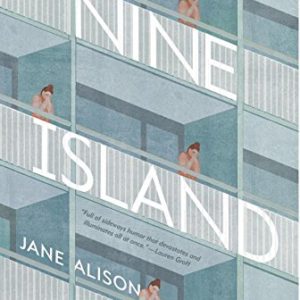Nell Zink: How to Become a Novelist in Ten Easy Steps
Advice from the author of Nicotine
1. Examine your motives. Are you drawn to fiction writing because it can be performed cheaply at home? Are you an alcoholic looking for an excuse to sleep late? Writing is for compulsive storytellers. So are a lot of things—police work, diplomacy, counseling the needy, etc. Before you commit to writing as a career, make sure you’re not simply agoraphobic or depressed.
2. Arrange financing. If you’re in school, don’t waste time in English courses. Learn skills not everybody knows, like court reporting or Japanese, so you can get part-time work at a decent wage. Don’t write short stories and poems unless you have a trust fund. No matter how perfect they are, no matter what prestigious magazine publishes them, each one will be 200 pages too short to pay the rent.
3. Write a bad novella. Before starting on your debut novel, get your first novel out of your system. If you’re used to short, controlled forms, the mandate to stretch out will bring all sorts of unpleasantness to the surface. Digging deep for material, you find your dog’s scrotum and your grandmother’s vibrator, along with cheesy fantasy tropes from some movie you secretly loved when you were 14. Everybody does. I’m not saying, “Don’t go there.” Everybody goes there. Just don’t think it has anything to do with creativity.
4. Don’t publish the bad novella. Even if your tale of youthful aberrance resembles esteemed work by respected writers who are all over the internet, keep it to yourself. As has often been said, “The internet is female.” It is also the place where “Content wants to be free.” You do not want to be free. You want to be very expensive.
5. Think of a plot and characters. Plot means that every notable event is conditioned on previous events. Start with the novel’s climax (often the first thing you know about it, its most striking moment) and work backward, asking why-why-why. Then write forward. With proper buildup, a scene that means little in isolation can become as significant to readers as it is to you. Your plot will of course reveal character through conflict, but novel readers are super nosy, so be sure to work out some characters’ personalities in detail.
6. Write your debut. That means 200 double-spaced pages. You might have the most polished first chapter in history, but if you’re a beginner, agents will want to know that the whole thing exists, and possibly even to read it. Who cares if developing your idea would take 800 pages? Stop at 200. You can add more later.
7. Never worry about style. If your style is good, you can write for a market that cares about style. But most people (including some agents and editors) don’t know it when they see it. Unpretentious pulp sells better than prestigious art anyway. Worry about being a good storyteller. If you think your crap style would be improved by an MFA, apply to programs in NYC so you’ll meet editors. But be warned that you might end up teaching. Writing instructors read student work all day long. Look at my friend Justin Taylor—author of a genuinely ambitious and beautiful novel—reduced to preaching consonance and alliteration so his students’ clunky prose won’t be so suck-ass ordinary! It’s heartbreaking.
8. Get an agent. When you have 200 pages, start querying. See pw.org for instructions. A hint in re plot: If you struggle to write the synopsis, you fucked up. Getting an agent will take forever. It took Jonathan Franzen a year to find me one. The publishing industry runs on geologic time, and this will be your first chance to start getting used to it. Agents want to be persuaded of three things: (a) You can write five non-boring pages in a row. (b) You are a hard worker with the stamina to get to 200 pages. (c) You would rewrite all 200 if an editor asked you to.
9. Sell it. This is the easy part. Do whatever the agent says, and don’t laugh or cry. Poor editors pay in compliments, and rich editors pay so slowly you start to wonder whether they pay at all. I would never say you should relax—that’s impossible—but don’t act out.
10. Write another one. Even if your first advance is so big you could retire, you’re going to need some kind of distraction to get you through the rest of your life. So why not keep writing? It’s sort of fun.
Read excerpts from Nell Zink’s Private Novelist and her new novel, Nicotine.




















